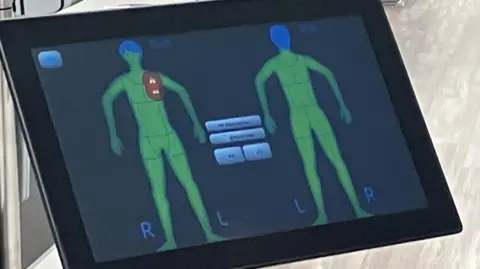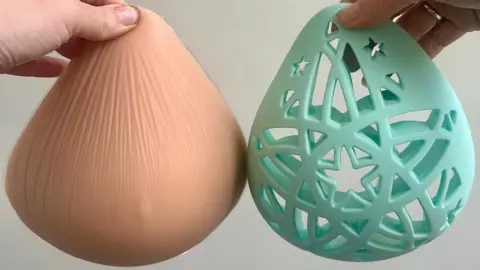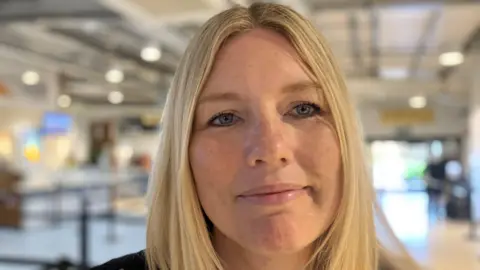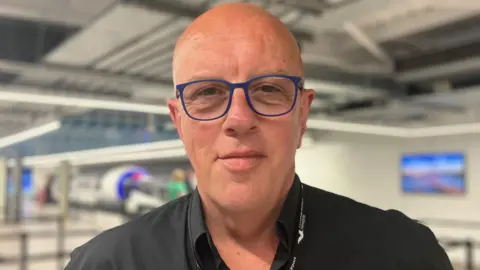Airport apologises for woman's breast form shock
 BBC
BBCAirport bosses have apologised to a woman who had undergone a mastectomy after she had her prosthetic breast "prodded and patted" at security before taking a flight.
The woman, who did not want to be named, said she was repeatedly asked "What is that?" at Bristol Airport and then told she would have to be strip-searched.
The woman, from Cornwall, said: "I was really upset, really shocked. I didn't want to prove to two security women in an airport that I'd had a mastectomy."
Bristol Airport said it was "very sorry" to hear what had happened and urged passengers to speak to a member of staff just before screening "to make them aware of any prosthetics and medical devices".
 Sam Jackman
Sam JackmanShe said she pulled out her breast form from her bra and then the security guard peered down her top.
In regards to her anonymity she said: "I don't want to be known as the woman who has had a mastectomy" but she wanted to highlight it to other women.
The woman said she did not complain to the airport but she did tell Boost, the Cornish company which manufactures the breast form that she has chosen to wear, instead of the usual heavier prosthesis.
As a result Sam Jackman, the founder and CEO of Boost Innovations, has been working with Cornwall Airport Newquay to inform security staff about mastectomies and breast forms.

"We just wanted to say to airport security these are the type of products that you might see that might set off your system," she said.
"Of course airport security staff have to investigate when something comes up as an anomaly on their systems and we expect that we want to be safe when we fly.
"But to treat women with the dignity they deserve to make sure they have the opportunity to explain what they wearing and why, in privacy with a female security officer.
"And to have that awareness about the broader issues that might be affecting someone's stress levels and anxiety when they travel after breast cancer, she said.

Steve Ferridge, the security trainer at Cornwall Airport Newquay, said the new security scanners at some airports worked by sending waves through to people's skin and reflecting back so anything above the skin that is not part of the body will show as an anomaly.
"We would identify with the passenger that they have had a mastectomy or are wearing a body form and offer them a private search," he said.
He said since engaging with Boost they had now incorporated suggestions into training when it came to body searching.
"I understand with bigger airports the pressures are different but we all have the ability to give humility to people and understanding and I think that's the important thing to follow through," he said.
A spokesperson for Bristol Airport said "We are very sorry to hear about our customer's experience. We urge them to contact us directly, so we are able to fully investigate. We take these matters very seriously.
"Customers can speak to a member of staff just before screening to make them aware of any prosthetics and medical devices. They can also request a private search.
"Screening of passengers travelling with medical devices and prosthetics has always formed part of the security training syllabus, and all searches are carried out in accordance with the Department for Transport regulations and the CAA guidance."
Follow BBC Cornwall on X, Facebook and Instagram. Send your story ideas to [email protected].
